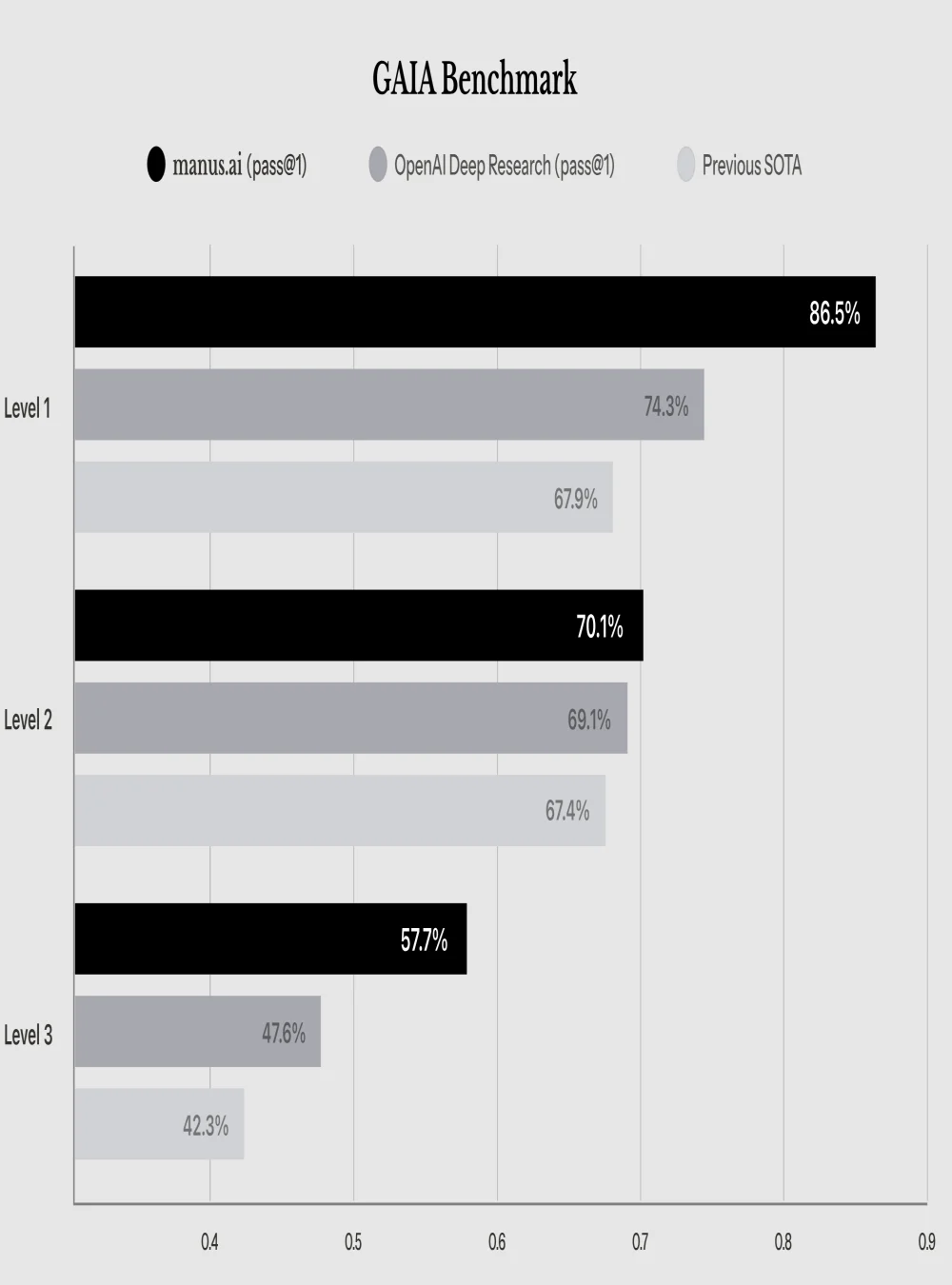After the spotlight on DeepSeek, China creates a new wave in the world of artificial intelligence with Manus AI, an autonomous agent that disrupts the standards set by American giants. Designed by the Chinese startup Monica, a subsidiary of the Butterfly Effect group, Manus redefines the notion of an autonomous agent, marking a decisive step in the evolution of AI.
Unprecedented Autonomy in the Field of Consumer AI
Unlike ChatGPT or Gemini, which require continuous interactions with the user, Manus AI operates in complete independence. Thanks to a sophisticated multi-agent architecture, Manus can analyze, plan, and execute complex tasks without any human supervision, even considering parameters not explicitly formulated by the user. From selecting candidates for a position to analyzing financial markets, to the autonomous creation of websites, Manus redefines the potential of digital assistants.
Its operation relies on a combination of advanced models, notably Claude from Anthropic and Qwen from Alibaba, orchestrated in a cloud infrastructure under Linux. Each complex task is divided into subtasks assigned to different specialized agents, allowing Manus to perform actions once reserved exclusively for humans.
A Revolution with Profound Consequences
The rapid success of Manus, despite a still perfectible beta, raises significant economic and social questions. Its ability to manage complex processes like candidate selection from a simple CV file, complete website creation, or investment portfolio analysis without human intervention challenges industry professionals.
For companies, the opportunity is immense: drastic increase in productivity, reduction of operational costs, total automation of administrative processes. But this extreme automation could also mean the disappearance of a large number of intermediate jobs.
A Shock for Silicon Valley
The emergence of Manus represents a major strategic turning point. Silicon Valley, traditionally at the forefront of AI innovation, observes with some nervousness this Chinese breakthrough.

Benchmark released by Monica, the startup developing Manus.
Where Silicon Valley bet on increasingly powerful AI models requiring human supervision, China opts for radical autonomy, challenging Western technological supremacy.
Nothing Revolutionary from a Technological Standpoint!
Manus seems to be to generalist assistants what Cursor is to IDEs: markdown files allow planning and orchestrating operations. The system merely orchestrates different LLMs, and there is concern that the tool may easily go astray in fulfilling requests if not closely supervised by a human. One might even consider that the launch of this tool is more about the audacity of the outsider than a real technological advance over the giants of AI.
Important Ethical and Regulatory Challenges
The rise of Manus does not occur without raising major concerns. Who will be responsible in case of a major error committed by a fully autonomous agent? How to regulate a technology that no longer requires human supervision? These questions remain unanswered, both in China and the West, even as Manus is already beginning to redefine industry standards.
For now, Manus remains accessible only by invitation, and its beginnings are not without technical difficulties. However, the promise of seeing the agent reach a level of maturity that could redefine our relationship to work remains intact.
Cet article publirédactionnel est publié dans le cadre d'une collaboration commerciale


